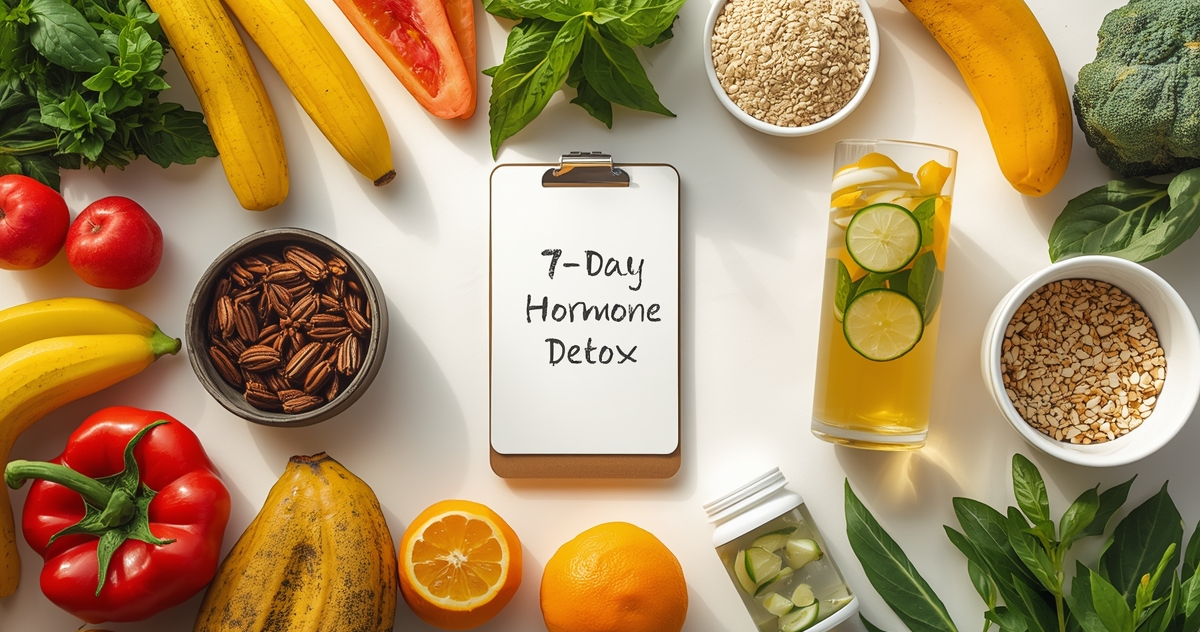Feeling constantly tired is a common complaint, especially as we navigate life beyond 40. It is easy to blame a demanding job, family responsibilities, or the stress of modern life. But what if that persistent exhaustion is not just about being busy? What if it is a signal from your body that something deeper is out of balance?
Many people in their 40s and beyond experience a level of fatigue that sleep does not seem to fix. This can be frustrating and disruptive, affecting everything from your productivity at work to your quality time with loved ones. While stress is often a factor, it is not the full story. Underlying issues such as hormonal shifts, gut health problems, and nutrient deficiencies are often the real culprits behind low energy levels.
This guide explores the hidden reasons you might be feeling so tired. We will look at how hormones, your digestive system, and even the food you eat can contribute to chronic fatigue. By understanding these connections, you can uncover the root cause of your exhaustion and take steps toward regaining your energy and vitality.
Hormonal Imbalances and Midlife Fatigue
Hormones regulate nearly every process in your body, from metabolism and mood to sleep cycles and energy levels. As we age, hormone production changes. For many, this transition can create imbalances that manifest as persistent fatigue. Understanding hormonal imbalance symptoms is the first step toward addressing them.
Key Hormones That Affect Energy
- Cortisol: Known as the stress hormone, cortisol regulates your sleep-wake cycle and energy. Chronic stress can cause dysregulated cortisol, sometimes called adrenal fatigue, leaving you wired at night but drained during the day.
- Thyroid hormones: Your thyroid controls metabolism. Low thyroid function can slow everything down, causing fatigue, weight gain, and cold intolerance. Nearly 20 million Americans have thyroid disease, yet many remain undiagnosed.
- Insulin: Insulin manages blood sugar levels. Insulin resistance, common in hormone health women 35+, causes spikes and crashes in energy, often leaving you exhausted after meals.
- Estrogen and progesterone: In women, these hormones affect sleep and energy. During perimenopause and menopause, fluctuations can disrupt rest, increase hot flashes, and cause daytime tiredness. They also contribute to challenges with weight loss after 40.
- Testosterone: Important for both men and women, testosterone supports energy, mood, and muscle mass. Low levels cause fatigue and weight gain, especially in men over 40.
If you struggle with unexplained fatigue along with mood swings, poor sleep, or weight changes, it may be time to evaluate your hormone levels.
The Gut-Brain Connection and Fatigue
Your digestive system is directly linked to your brain and overall energy. When the gut is not functioning well, it can leave you drained. The relationship between gut health and fatigue is becoming more widely recognized.
- Bloating, inflammation, and sensitivities: Chronic gut inflammation or food sensitivities can trigger fatigue and brain fog. Conditions like IBS often have tiredness as a primary symptom.
- Your microbiome: The gut microbiome produces vitamins, regulates the immune system, and supports energy. An imbalance, known as dysbiosis, reduces nutrient absorption and increases inflammation, both of which lower energy levels.
Nutrition and Energy
Food is fuel, but the quality of your diet matters more than the number of calories. For people over 40, a one-size-fits-all approach rarely works.
- Processed foods and sugar: Diets high in sugar and refined carbs cause blood sugar spikes followed by deep crashes. They also promote inflammation, leading to insulin resistance and fatigue. This can worsen menopause belly fat and energy issues.
- Personalized nutrition: As you age, you may need more protein or certain vitamins and minerals to support hormones and metabolism. A tailored approach is often the best diet for women 40+.
- Food sensitivity testing: Identifying hidden food sensitivities can improve digestion, reduce inflammation, and restore energy. For many over 40, it also supports sustainable weight loss.
Taking Control of Your Energy
Fatigue does not have to be your new normal. A proactive approach can help you identify the root causes of tiredness and create a targeted plan for wellness.
- Functional lab testing: Advanced testing goes beyond standard blood work to reveal hormone patterns, gut imbalances, nutrient deficiencies, and food sensitivities. These blood tests for weight loss and energy provide insights for creating a personalized plan.
- A tailored wellness plan: Depending on your results, your plan may include hormone support through nutrition and supplements, gut healing strategies, food sensitivity elimination, targeted supplementation such as vitamin D or B vitamins, and stress management practices like mindfulness and exercise.
By addressing your body’s interconnected systems, you can achieve lasting results rather than simply managing symptoms.
Your Path to Renewed Energy
If you are tired of being exhausted, it is time to dig deeper than stress. The answers may lie in your hormones, your gut, or your nutrition. With a personalized plan guided by functional testing and expert support, you can move from fatigue to vitality.
Ready to stop guessing and start feeling better? Schedule a free 30-minute health consultation with Leap 2 Better Health today. We will discuss your goals, uncover the root causes of your fatigue, and create a clear plan to restore your energy and balance.





